- FEATURED BOOKS -
God's Creatures Tell the Story Series
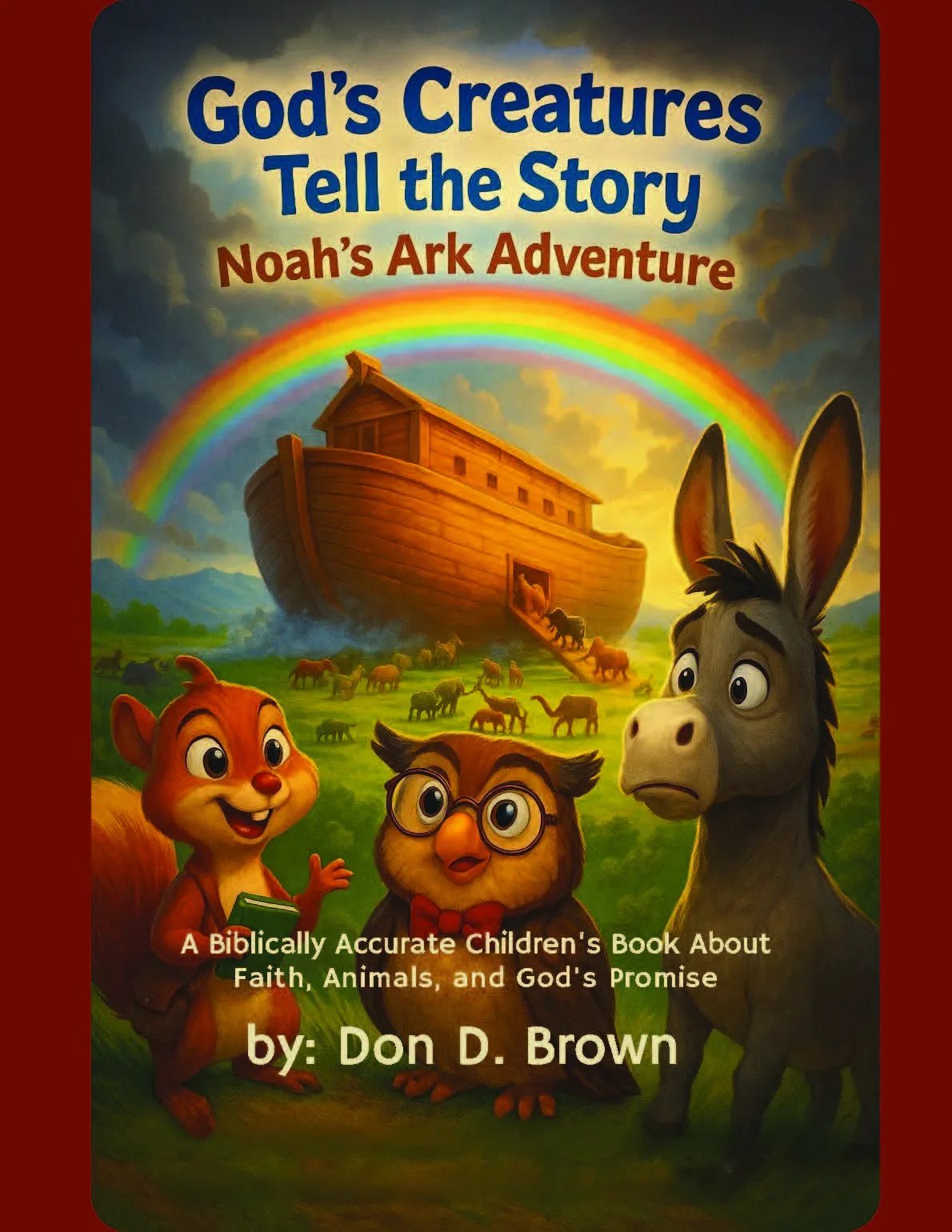
Noah and the Ark Adventure
When Penny the Squirrel loses her lucky pencil in the Heavenly Newsroom, it's just another day at the office, until Angel Gabriel arrives with breaking News! A righteous man Named Noah is building an enormous boat in the middle of the desert, and the news team must investigate this incredible story. Let's go along for the adventure.

Joshua and the Walls of Jericho
Through this engaging retelling of Joshua 6, children will learn important lessons about trusting God's plan (even when it seems strange!), the power of obedience, and how God welcomes people from all backgrounds into His family.
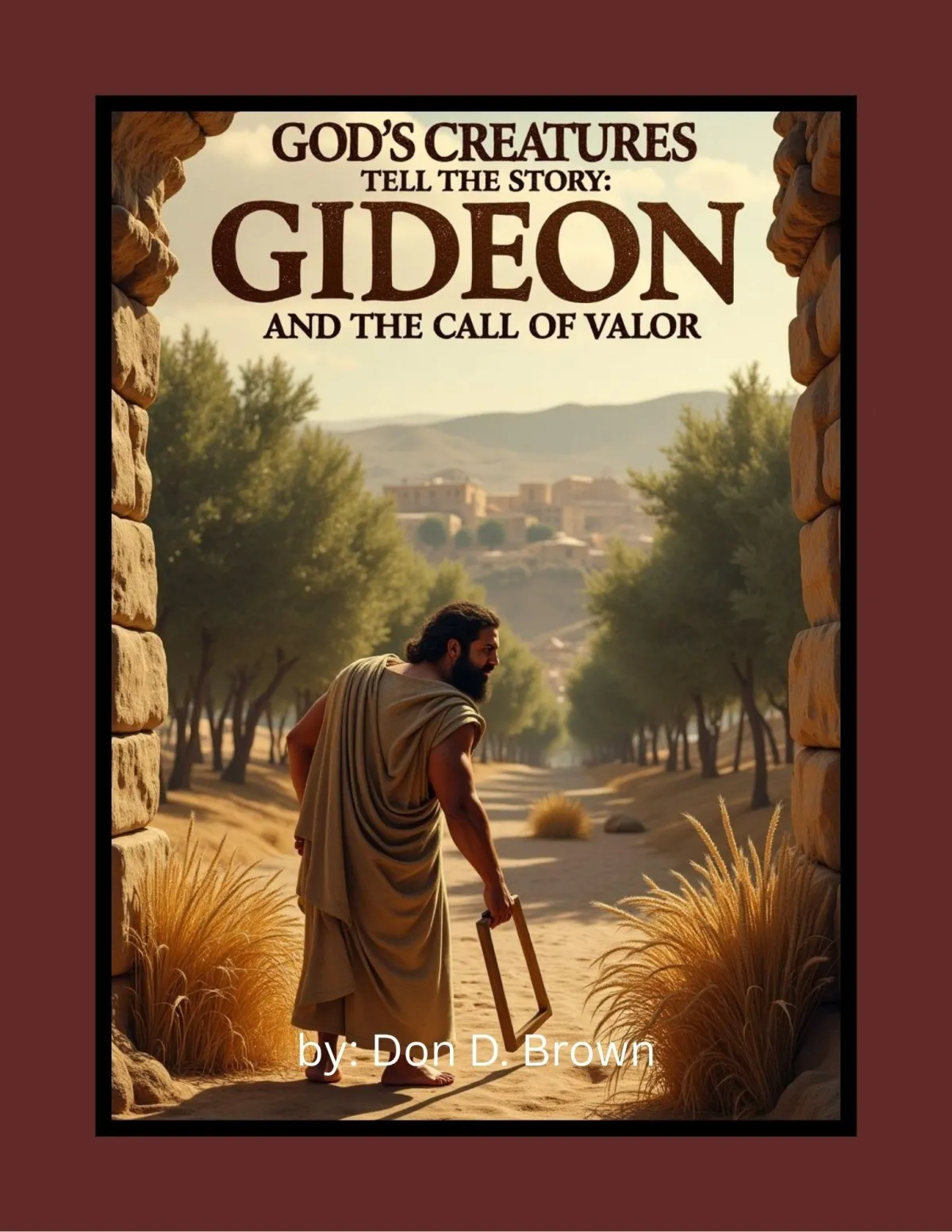
Gideon and the Call to Valor
This delightful story brings to life one of the Bible's most powerful lessons about courage and faith. Through charming animal narrators, children will discover how God sees potential where others see weakness, and how He can use ordinary people to accomplish extraordinary things.
- FEATURED BOOKS -
God's Creatures Tell the Story Series
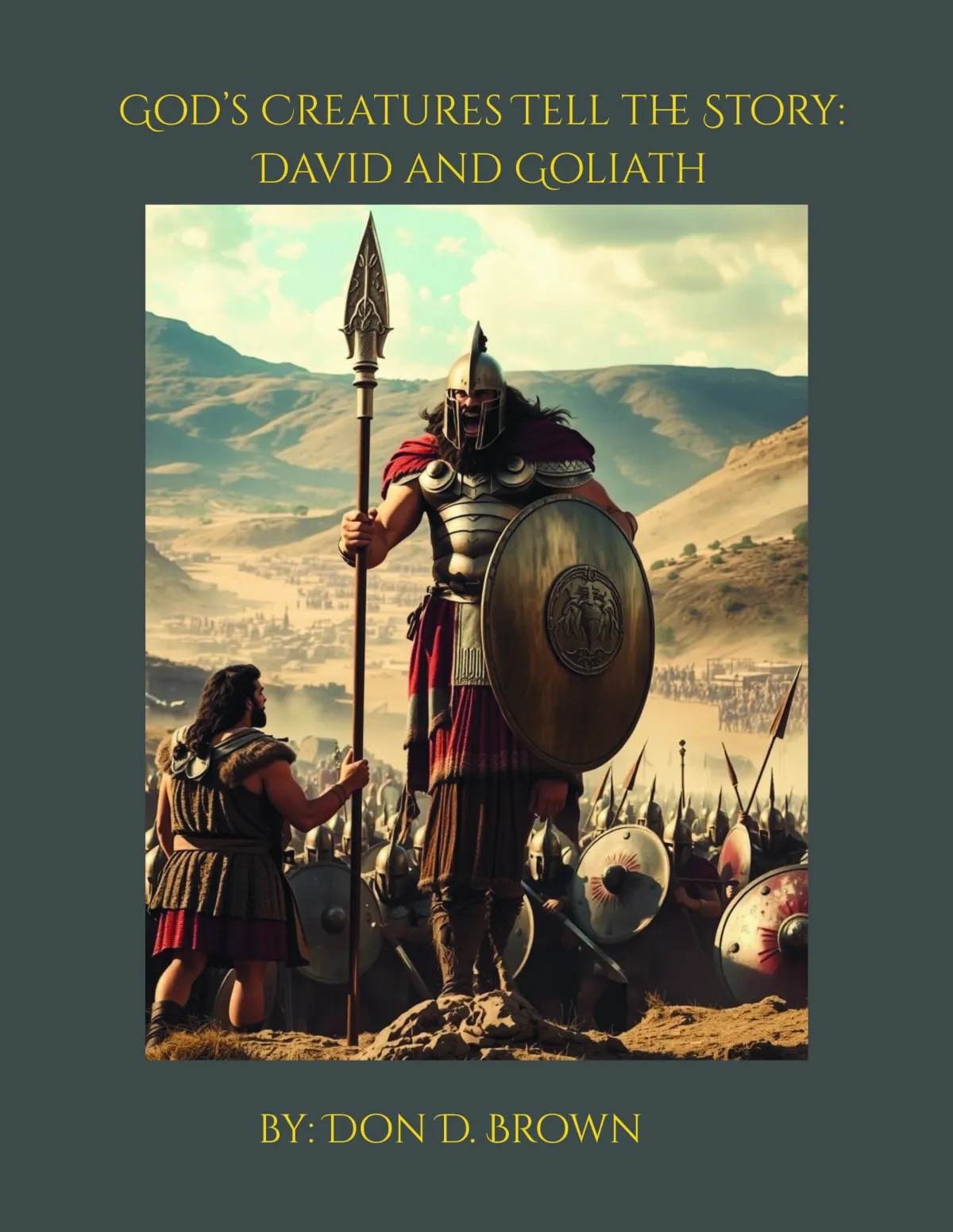
David and Goliath
Come along and observe a young shepherd named David, whose extraordinary courage and faith lead him to volunteer for an impossible task—facing the gigantic Philistine warrior Goliath when no one else dares. Through the eyes of our animal reporters, children will discover the deeper meaning behind this timeless tale of facing life's giants with God's help.
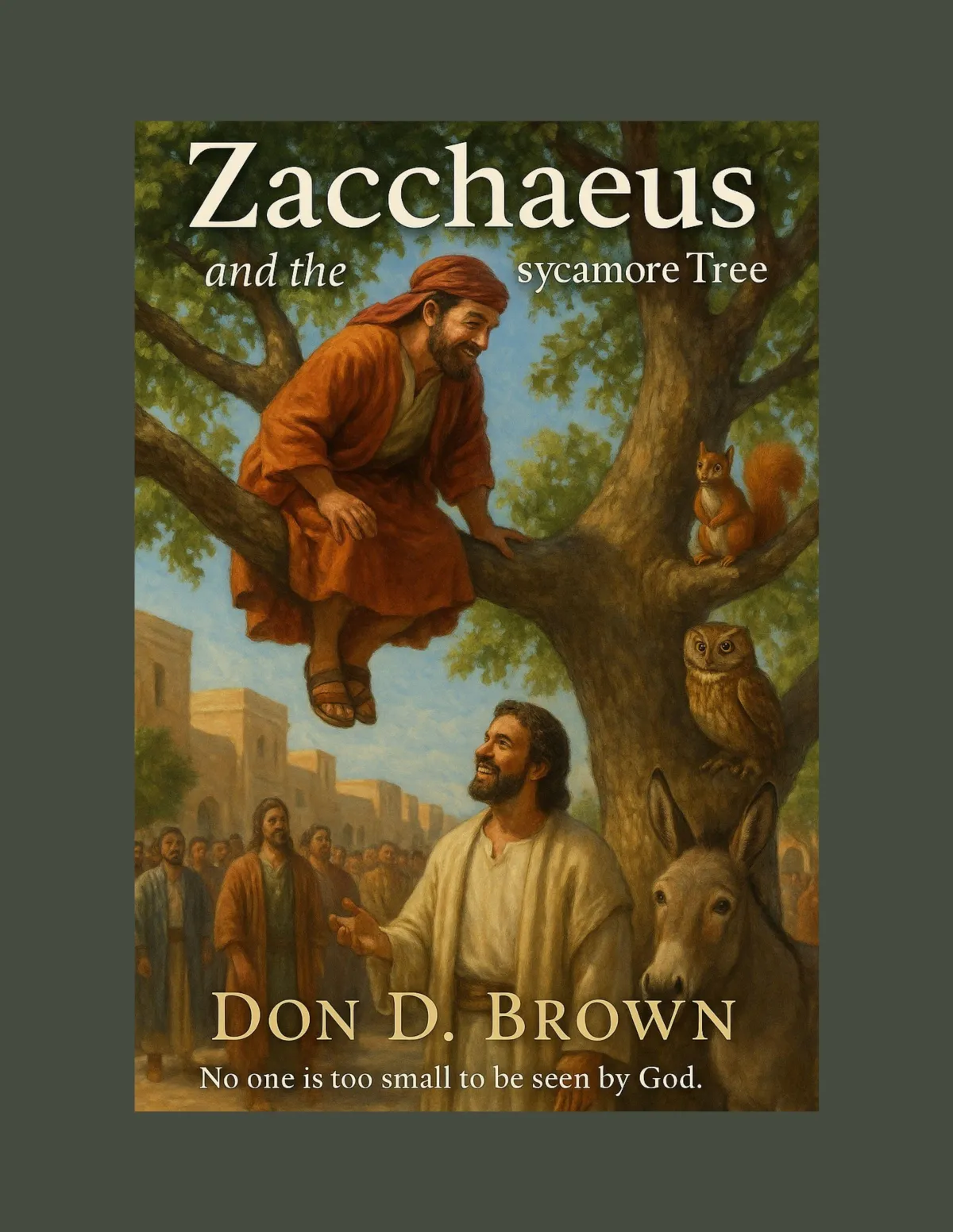
Zacchaeus and the Sycamore Tree
A tax collector climbs a tree to see Jesus, but instead Jesus sees him. The reporters cover Zacchaeus’s transformation from greed to grace. Children learn that no one is too small—or too lost—for God’s love.

Ruth and Boaz: A Tale of Loyalty and Redemption
Ruth’s loyalty to Naomi leads her to unexpected love with Boaz. The reporters follow a foreign widow’s faith that changes history. Children see that God honors loyalty and welcomes all into His story.
- FEATURED BOOKS -
Insurance and Risk Management
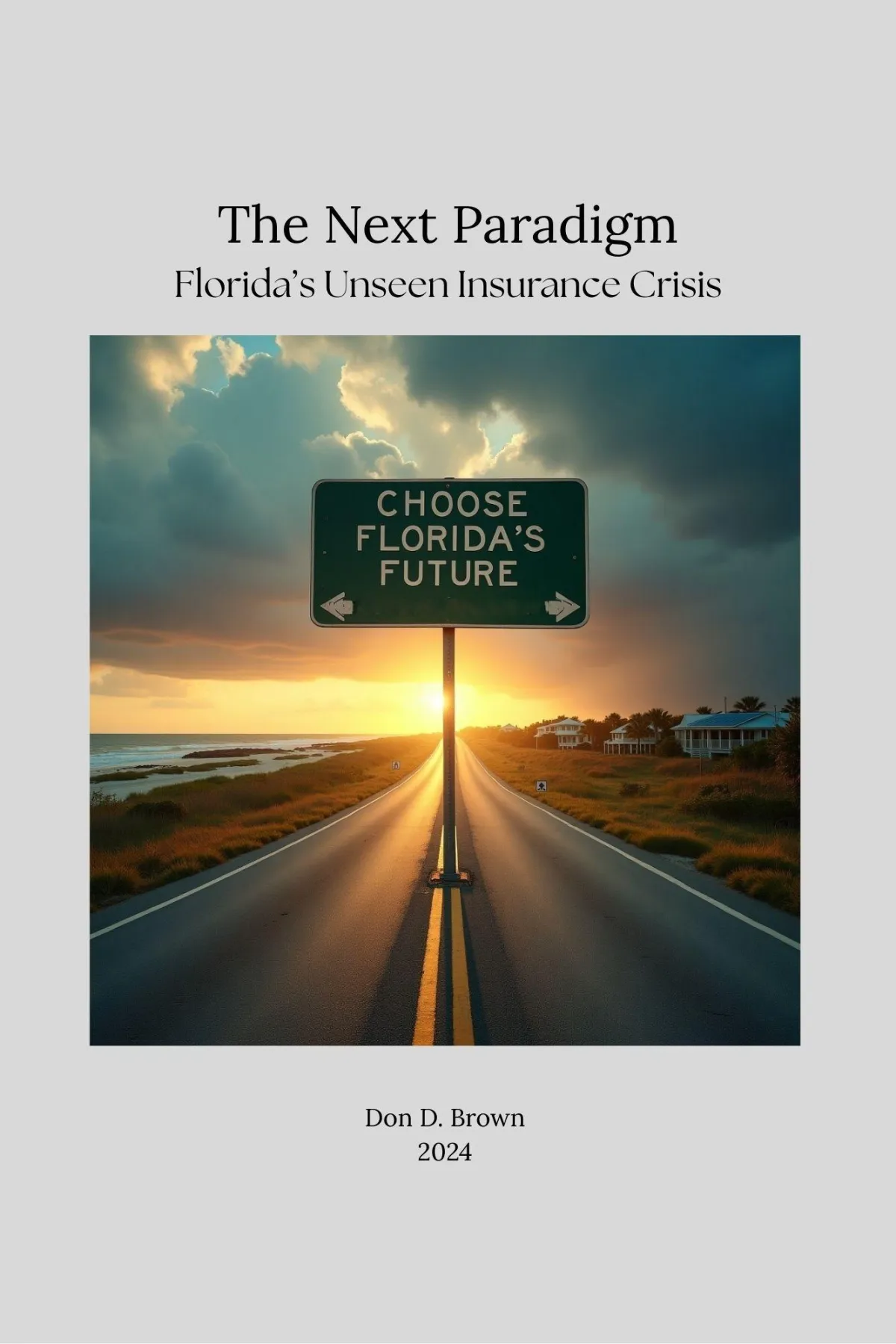
The Next Paradigm: Florida's Unseen Insurance Crisis
Written by a former Florida state legislator who voted against the policies creating this crisis, The Next Paradigm reveals how 8.1 million Floridians now live in hurricane zones with $3.2 trillion in property exposure that cannot be sustainably insured. Every day, 550 more people move into harm's way while Citizens Property Insurance grows beyond any ability to pay claims.
What you'll discover:
· Why every "solution" Florida tries makes the crisis worse
· How Citizens Property Insurance operates as a legalized Ponzi scheme
· The psychology preventing smart people from acknowledging obvious risks
· Mathematical proof that current development patterns guarantee market failure
· Detailed action plans for property owners, businesses, and policymakers
· International case studies proving managed adaptation works
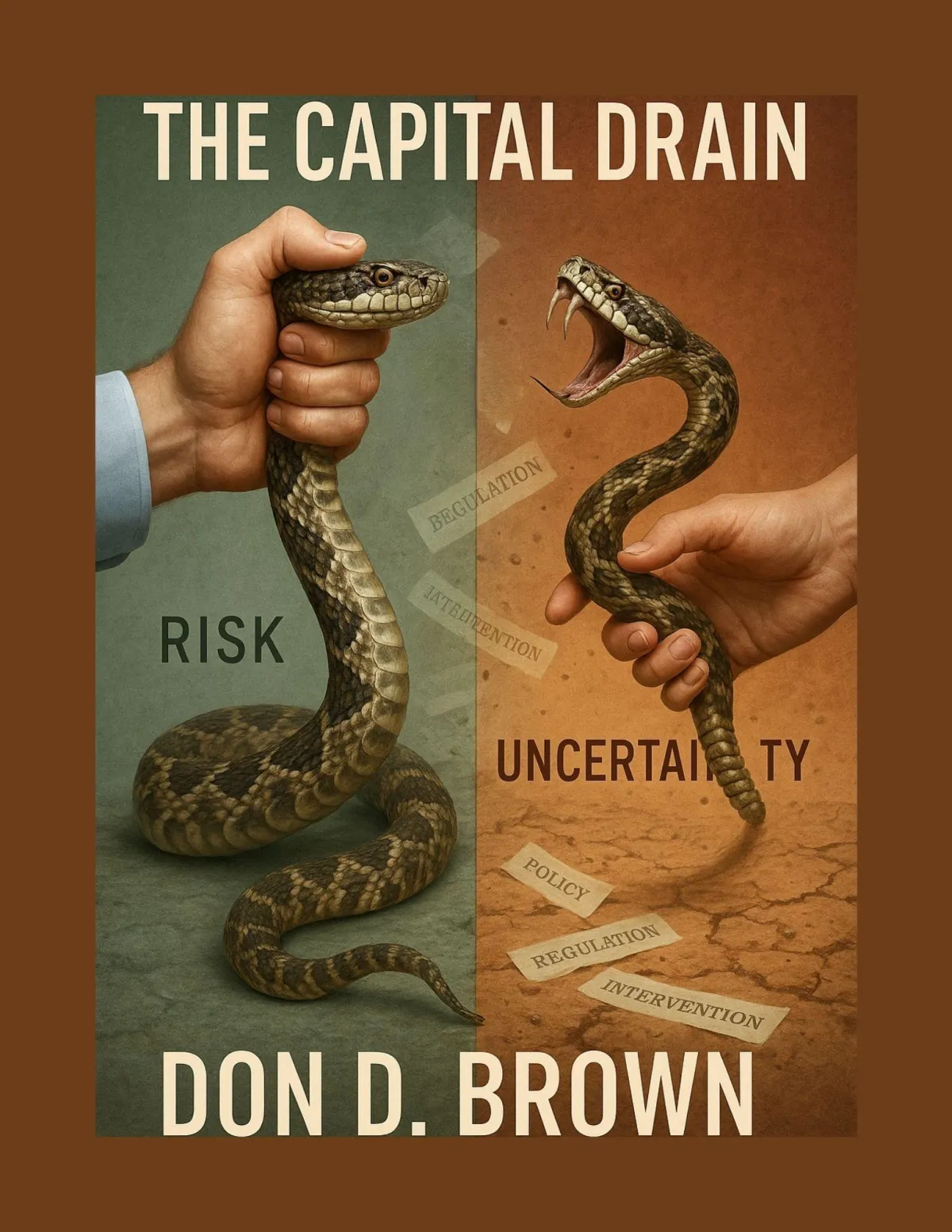
The Capital Drain: Why Uncertainty- Not Hurricanes - Breaks Insurance Markets
Why do insurance companies flee states with perfect hurricane tracking while staying in earthquake zones? Why do premiums spike after quiet years? The answer isn't in the weather—it's in the rulebook.
When Hurricane Andrew devastated Florida in 1992, the insurance market adapted and recovered. But when politicians began changing the rules—freezing rates, extending deadlines, rewriting coverage after storms hit—capital didn't just retreat; it ran. Today, Florida homeowners pay the price: premiums that have tripled, insurers that keep leaving, and a state-run insurer of last resort that has become the largest in the market.
The Capital Drain shows how:
Well-meaning political "fixes" create more problems than hurricanes ever could
Simple principles from ancient Babylon and biblical Joseph offer better solutions than modern financial engineering
Florida's insurance crisis is a warning for every state facing climate risks
Markets can price any storm, but they can't price political chaos
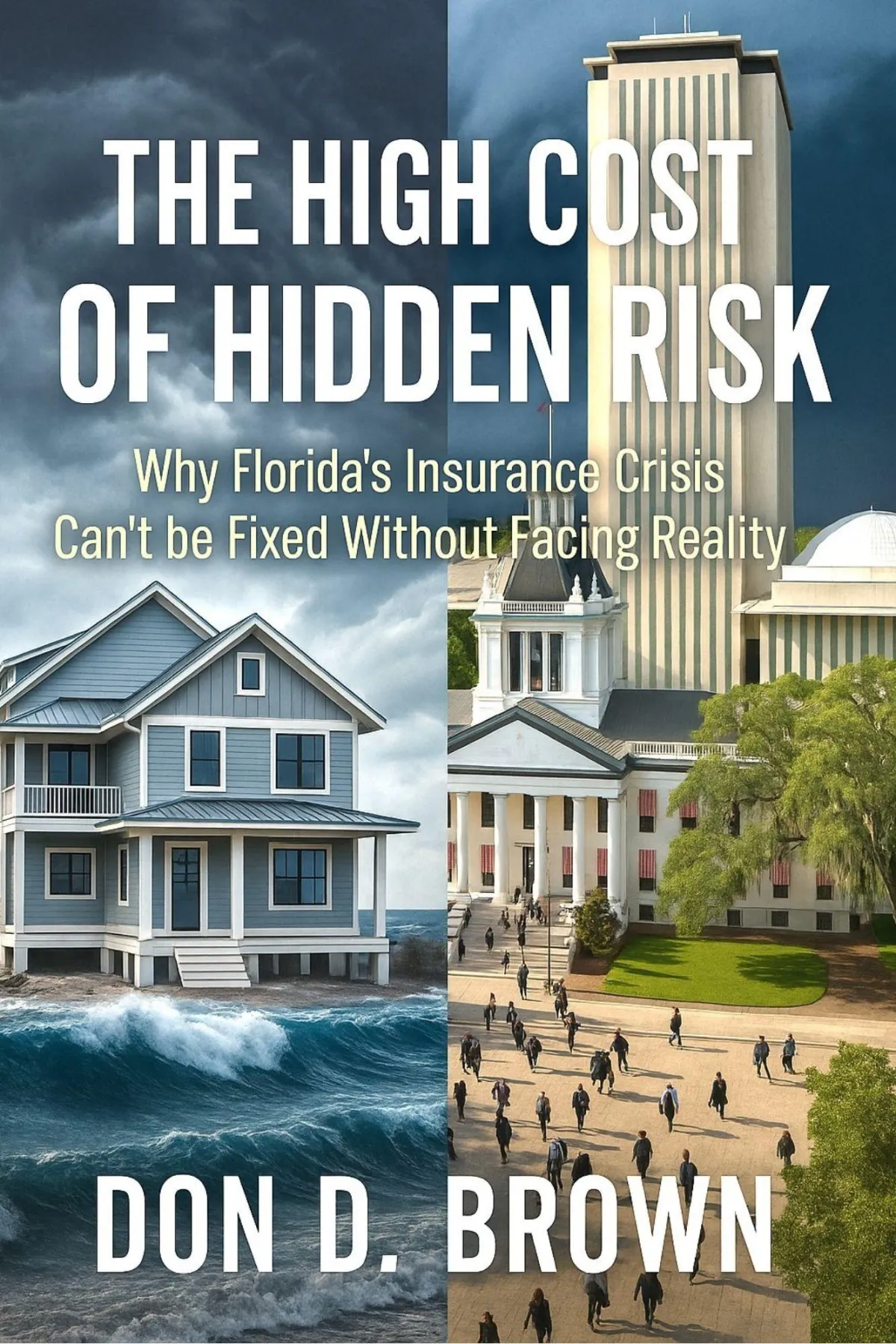
The High Cost of Hidden Risk: Why Florida's Insurance Crisis Cant't be Fixed Without Facing Reality
Florida’s insurance crisis is more than rising premiums — it is a system of hidden risk, post-event debt, and policies that pass today’s costs to tomorrow’s families. In The High Cost of Hidden Risk: Why Florida’s Insurance Crisis Can’t be Fixed Without Facing Reality, former Florida legislator and insurance expert Don D. Brown reveals how short-term fixes like subsidies and borrowing leave homeowners, taxpayers, and future generations vulnerable.
With clarity and authority, Brown examines the policy failure of HB1A, the systemic risks of Citizens Property Insurance Corporation, and the cascading costs of post-event funding. He contrasts Florida’s approach with international models — from Japan’s earthquake resilience to the Caribbean’s parametric insurance pool — proving that pre-event funding, Code Plus construction standards, and actuarial transparency are the only sustainable solutions.
- FEATURED BOOKS -
Insurance and Risk Management
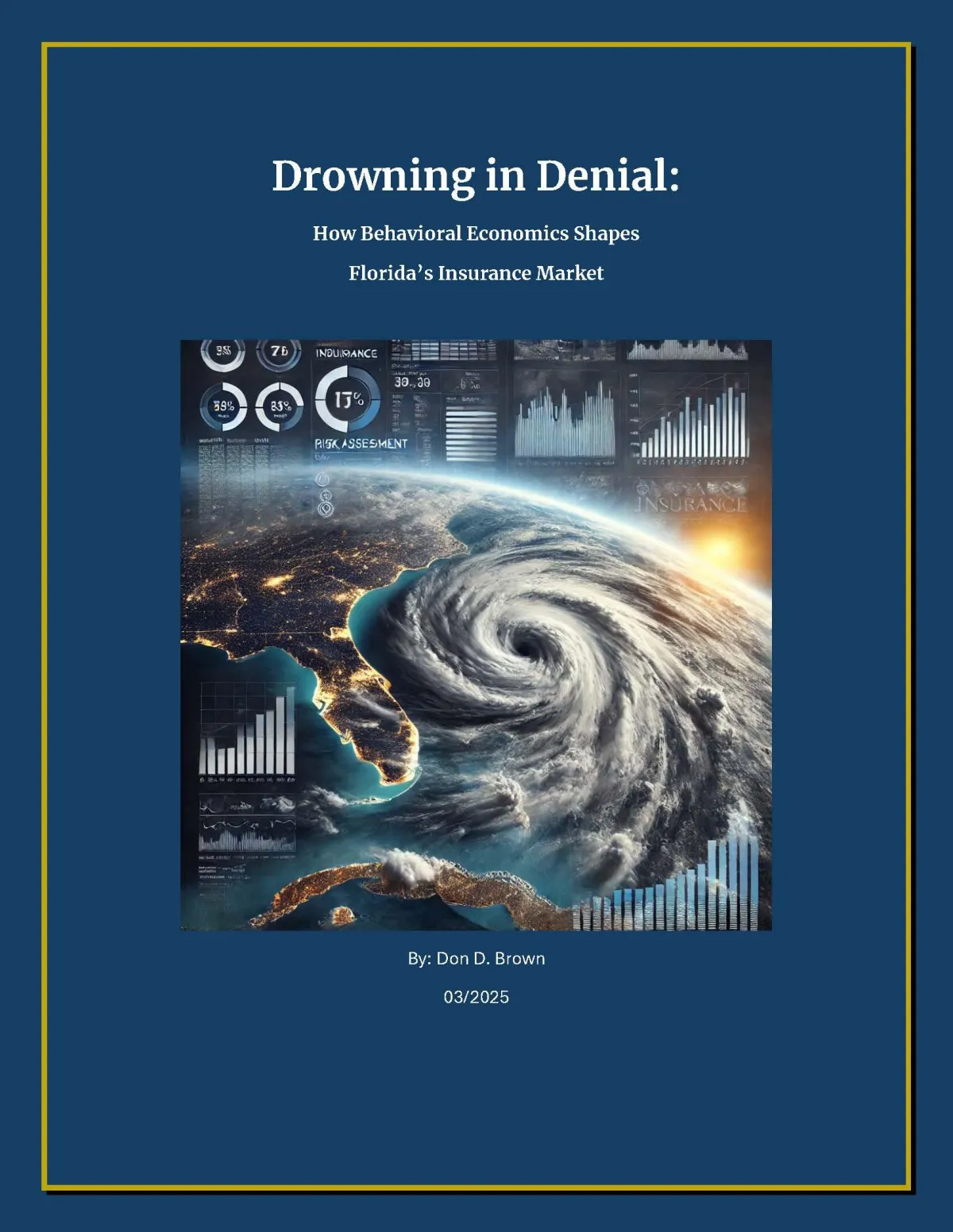
Drowning in Denial: Behavioral Economics and Coastal Insurance Markets - A Path to Resilience
Florida’s property insurance crisis isn’t just about hurricanes—it’s about human behavior. Drowning in Denial: Behavioral Economics and Coastal Insurance Markets – A Path to Resilience uncovers how optimism bias, loss aversion, and status quo inertia drive underinsurance, bankrupt insurers, and failed reforms.
Drawing on 30 years of legislative and policy experience, Don D. Brown reveals why 65% of past reforms failed, and why 40% of Florida’s coastal homes may soon be uninsurable. Through vivid case studies, behavioral insights, and historical analysis, he shows how hidden biases trap homeowners, regulators, and insurers in cycles of denial.
Inside, you’ll discover:
- Why small daily “savings” lead to catastrophic losses.
- How biases drive political inaction and market dysfunction.
- The principle-based framework that can actually succeed where others failed.
- Practical reforms that account for real human behavior.
Both a warning and a roadmap, Drowning in Denial proves that while storms are inevitable, financial ruin doesn’t have to be.
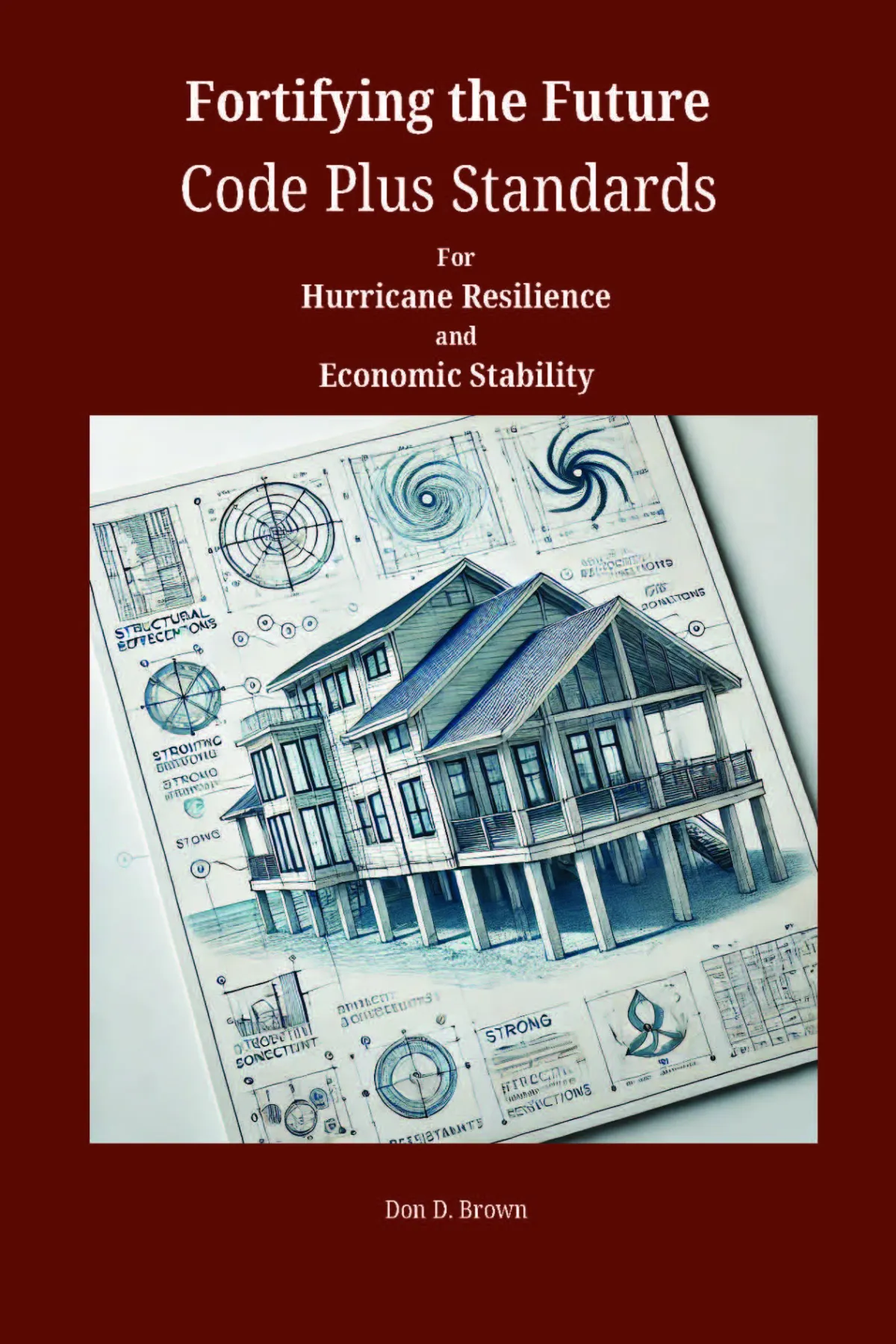
Fortifying the Future: Code Plus Standards For Hurricane Resilience and Economic Stability
Florida’s insurance crisis isn’t just about high premiums—it’s about hidden risk. Fortifying the Future: Code Plus Standards for Hurricane Resilience and Economic Stability reveals why stronger building standards are the key to protecting homes, stabilizing insurance markets, and securing Florida’s future.
In this groundbreaking book, Don D. Brown explains how Code Plus enhancements—impact-resistant windows, reinforced roofs, advanced connections—cut storm damage by up to 50% while reducing premiums 25–40%. Drawing on engineering science, economic modeling, and case studies from Florida and beyond, he shows how modest upfront costs deliver massive long-term savings.
You’ll discover:
- Why past disasters reveal the urgent need for change.
- How Code Plus protects both homeowners and taxpayers.
- Policy options for making resilience affordable and achievable.
- Lessons from communities that got it right.
A call to action for policymakers, industry leaders, and homeowners alike, Fortifying the Future proves that resilience is not just possible—it’s essential.

The High Cost of Hidden Risk: Why Florida's Insurance Crisis Cant't be Fixed Without Facing Reality
Florida’s insurance crisis is more than rising premiums — it is a system of hidden risk, post-event debt, and policies that pass today’s costs to tomorrow’s families. In The High Cost of Hidden Risk: Why Florida’s Insurance Crisis Can’t be Fixed Without Facing Reality, former Florida legislator and insurance expert Don D. Brown reveals how short-term fixes like subsidies and borrowing leave homeowners, taxpayers, and future generations vulnerable.
With clarity and authority, Brown examines the policy failure of HB1A, the systemic risks of Citizens Property Insurance Corporation, and the cascading costs of post-event funding. He contrasts Florida’s approach with international models — from Japan’s earthquake resilience to the Caribbean’s parametric insurance pool — proving that pre-event funding, Code Plus construction standards, and actuarial transparency are the only sustainable solutions.
